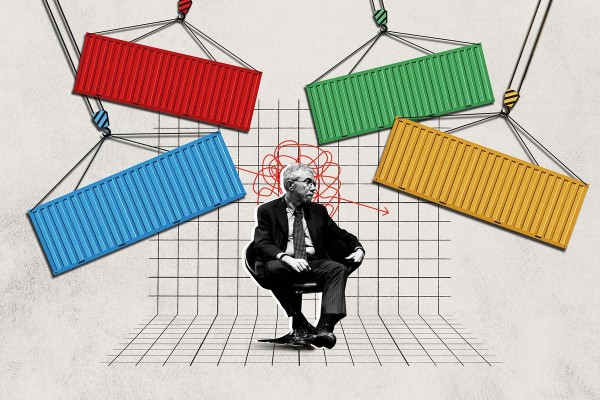Paul Krugman has never suffered fools gladly. The Nobel Prize-winning economist rose to international fame—and a coveted space on the New York Times op-ed page—by lacerating his intellectual opponents in the most withering way. In a series of books and articles beginning in the 1990s, Krugman branded just about everybody who questioned the rapid pace of globalization a fool who didn’t understand economics very well. “Silly” was a word Krugman used a lot to describe pundits who raised fears of economic competition from other nations, especially China. Don’t worry about it, he said: Free trade will have only minor impact on your prosperity.
Now Krugman has come out and admitted, offhandedly, that his own understanding of economics has been seriously deficient as well. In a recent essay titled “What Economists (Including Me) Got Wrong About Globalization,” adapted from a forthcoming book on inequality, Krugman writes that he and other mainstream economists “missed a crucial part of the story” in failing to realize that globalization would lead to “hyperglobalization” and huge economic and social upheaval, particularly of the industrial middle class in America. And many of these working-class communities have been hit hard by Chinese competition, which economists made a “major mistake” in underestimating, Krugman says.
It was quite a “whoops” moment, considering all the ruined American communities and displaced millions of workers we’ve seen in the interim. And a newly humbled Krugman must consider an even more disturbing idea: Did he and other mainstream economists help put a protectionist populist, Donald Trump, in the White House with a lot of bad advice about free markets?
To be fair, Krugman has been forthright in recent years in second-guessing his earlier assertions about the effects of open trade. He has also become a leading and sometimes harsh critic of his own profession, especially in the aftermath of the financial crisis and Great Recession, when he declared that much of the past 30 years of macroeconomics was “spectacularly useless at best, and positively harmful at worst.” He admirably held the Obama administration to account for its timid financial and economic reforms. He even had some kind things to say about proto-progressives such as Robert Reich, the former Clinton administration labor secretary who worried about global competition and sought better protections and retraining for American workers, and whom Krugman had once dismissed to me—back in his lacerating days in the ’90s—as an “offensive figure, a brilliant coiner of one-liners but not a serious thinker.”
https://foreignpolicy.com/2019...
Economists on the run - Foreign Policy
Rahvusvahelised uudised | 17 Jul 2020 | EWR
Rahvusvahelised uudised
TRENDING



























